
12 10 2021
Blog


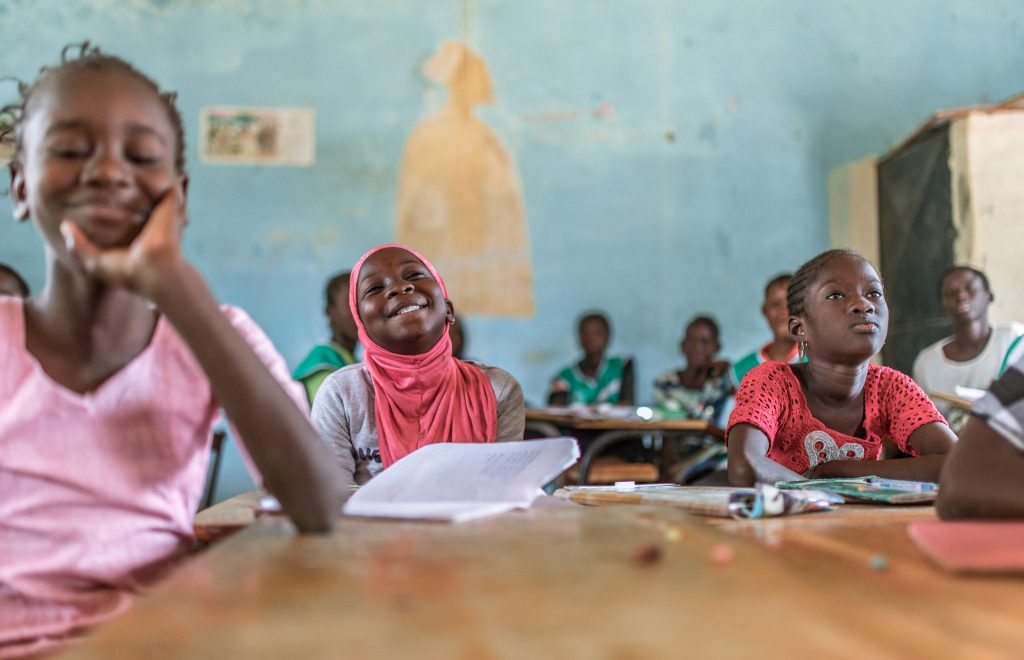
On October 11th, we celebrated the International Day of the Girl Child, a day to talk about the challenges facing girls and to encourage their empowerment. This year's theme was "Digital Generation, Our Generation," a theme that is particularly relevant in the COVID-19 context.
It is essential to support young girls so that they can reach their highest potential and make their own decisions regarding their future because gender inequalities start at a young age. Indeed, while women are the engine of economic development in Africa, it is estimated that it will take 121.7 years to close the gender gap in sub-Saharan Africa.
Still today, there are inequalities in access to health services for girls and women due to cultural, social and economic factors, especially in developing countries: they have lower incomes, have to rely on a family member, carry heavy family burdens, do not have access to education or suffer from discrimination. We also know that these inequalities persist throughout their lives. When they are young, they are not given the same attention as boys when they suffer from childhood diseases. And when they are teenagers and of childbearing age, they do not have proper gynecological advice and care. It should be noted that in addition to maternal mortality, genital mutilation and sexually transmitted diseases, women aged 15 to 49 are more affected by HIV, tuberculosis and malaria.
These many challenges prevent them from attending school or work and therefore from being fully independent, while at the same time they contribute strongly to the health sector, representing 70% of the community health workers in the world.
Education is a vital foundation for these girls to gain the knowledge they need to participate in policy-making processes and reduce the socio-cultural burdens that follow them throughout their lives.
For Professor Ndioro Ndiaye, Coordinator of the Francophone Network for Gender Equality and President of the Leadership Council of Voix EssentiELLES, it is essential to promote them in decision-making spaces: "As we celebrate the International Day of the Girl, I call for increased representation in political systems, and for more women to get involved in grassroots politics." She said in an op-ed for Face 2 Face Africa. Women are also in the best position to develop policies that will respond precisely to the problems they face daily. Indeed, “women's ability to make their voices heard, to make decisions, and to assume their leadership are essential for their empowerment," she stated for BBC Africa, in a program broadcast for the Day.
The Voix EssentiELLES initiative, launched last July by Speak Up Africa and co-financed by the Global Fund and Fondation CHANEL, in Burkina Faso, Côte d'Ivoire and Senegal, addresses these issues. It aims to support and strengthen the capacities of women's and girls' organizations so that they can participate in the development of health policies that affect their health and well-being. Within the framework of Voix EssentiELLES, a dedicated fund has been created and technical support will be provided to them through the University of ExcELLEnce for them to benefit from organizational, leadership, advocacy and communication skills in the three countries.
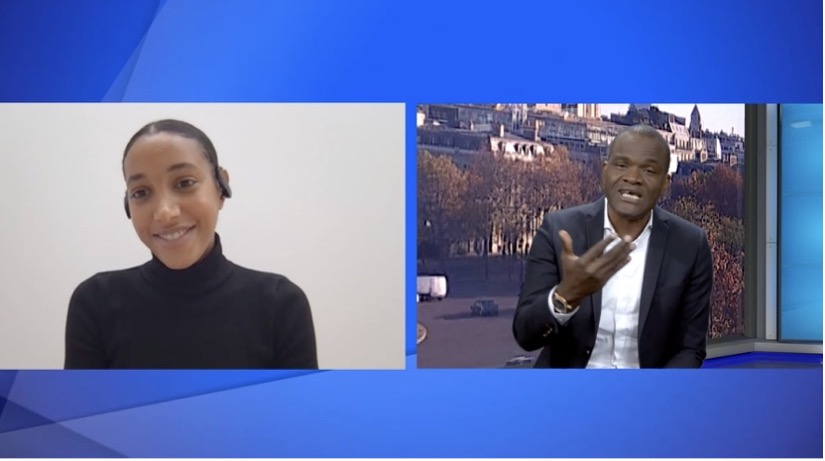
"I am very happy to see that Voix EssentiELLEs intends to promote the emergence of micro-organizations, which are numerous in Burkina Faso and unfortunately lack funding opportunities to act better. This initiative marks a revolution in the process of implementing health development programs in Burkina Faso. Stevie Reine Yameogo, Vice President of the Network of Young Ambassadors for Reproductive Health and Family Planning in Burkina (JASR-PF/Burkina).
Stevie Reine Yameogo, Vice President of the Network of Young Ambassadors for Reproductive Health and Family Planning in Burkina (JASR-PF/Burkina).
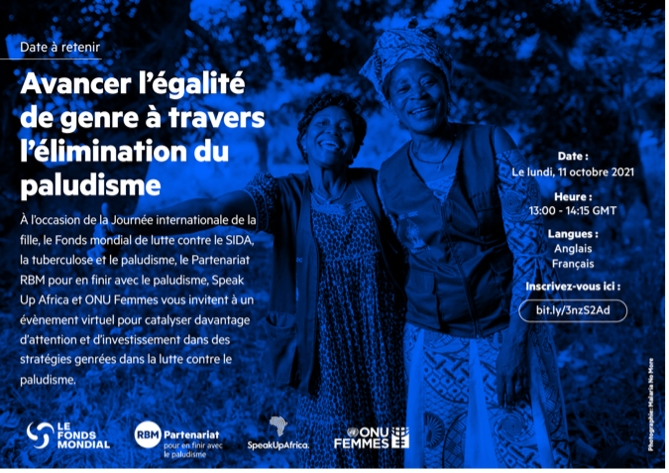
The gender theme is linked to the improvement of the health conditions of the population and must be integrated to respond specifically to the needs of young girls and women.
Also on International Day of the Girl, and to catalyze further attention and investment in the impact of malaria on girls and women, the RBM Partnership to End Malaria, the Global Fund, Speak Up Africa, and UN Women organized a virtual event on the theme "Advancing Gender Equality for Malaria Elimination".
"For too long the fight against malaria has been gender blind. It is time to address the hidden burden of malaria on women and girls.”
Ellen Johnson Sirleaf, co-chair of the Global Council to End Malaria, former President of Liberia and founder of the Presidential Center for Women Leaders and Development.
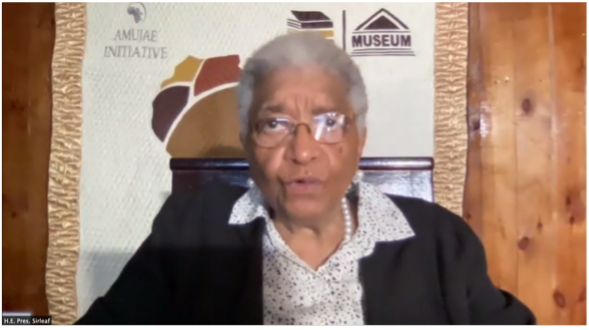
Malaria has many consequences for millions of women and girls in terms of access to health care, school and employment. Malaria is a particular burden on pregnant women, causing nearly 10% of maternal deaths, 11% of newborn deaths and 20% of stillbirths in sub-Saharan Africa. Women are at the front of the fight against malaria, whether in the health services as health workers, in the public sphere as community leaders, or at home caring for family members. To enable them to better manage the disease, "we must build the capacity of women and place them on the main stage by empowering them, by helping them, by supporting them morally, physically and financially." emphasizes Fatimata Sy, President of the Senegalese Association for the Future of Women and Children, in a video released at the event about the Voix EssentiELLES initiative.
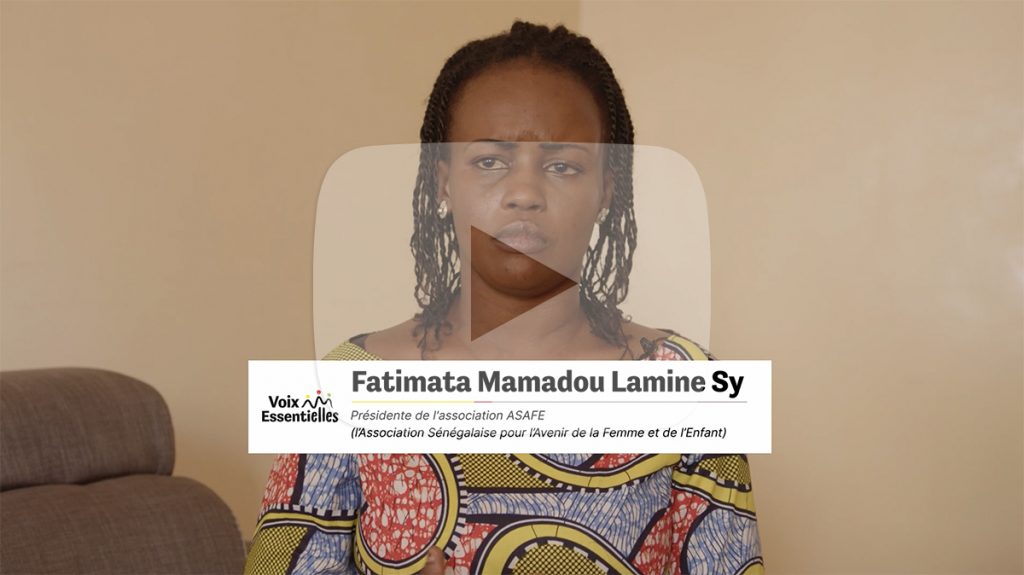
However, the march towards gender equality can only be achieved if boys and men are included.
The notion of positive masculinity must be widely promoted to allow them to be allies in this fight. In male-dominated spaces, their stance and their commitment would help change behaviors, fight against prejudices and redefine social relations between men and women.